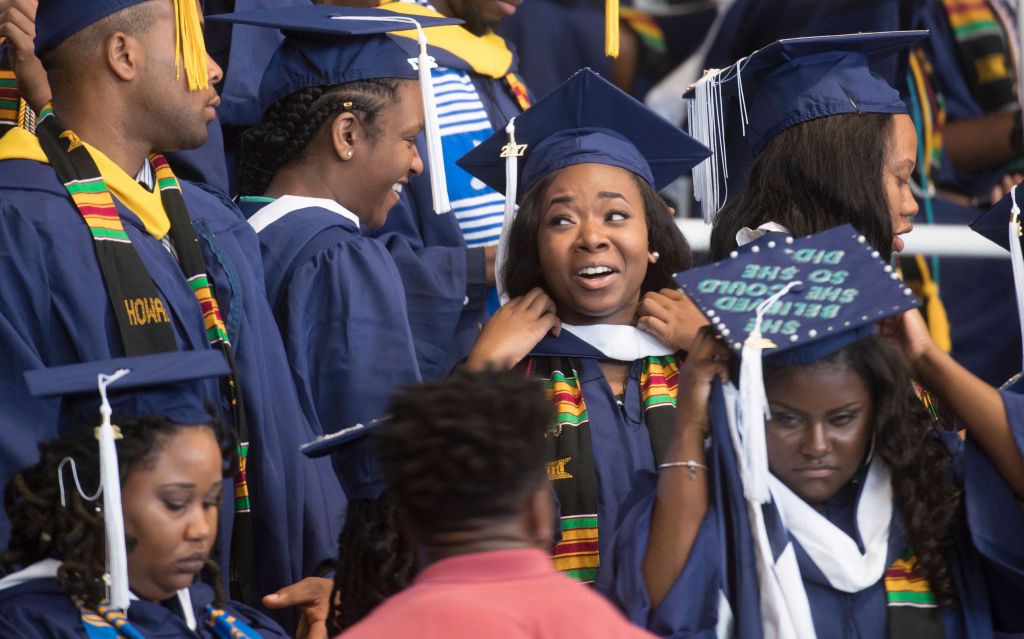Study: Black Students Found Safe Spaces At HBCU’s In States With Increased Hate Crimes

Source: The Washington Post / Getty
As state-level hate crimes ticked upwards during Trump’s presidency, a new study reveals Black students enrolled at historically Black colleges and universities in higher numbers.
The study, published by the Stanford University’s Center for Education Policy Analysis, analyzed data from the U.S. Department of Education covering enrollment numbers, campus crime statistics, and hate crime information from 1999 to 2017. States that housed at least one historically Black college or university were selected in the study.
The study is one of the first to examine the link between an increase in hate crimes and HBCU enrollment. It also offers sound data analysis for administrators at predominantly white institutions (PWI’s) to invest in creating a more inclusive environment for Black students and students of color.
Researchers Dominique Baker of Southern Methodist University and UC Berkeley’s Tolani Britton focused specifically on hate crimes targeting African-Americans as well as persons from different racial, religious and gender groups. Baker and Britton
“We find that a standard deviation increase in reports of state-level hate crimes predicts a 20% increase in Black first-time student enrollment at HBCUs,” the study’s abstract states. “As the number of reported hate crimes is almost assuredly an undercount of the actual number of incidents, we explore the implications of this work while keeping that limitation in mind.”
In 2019 hate crimes rose to the highest level they’d been in more than a decade. In order to escape certain dangers, Britton and Baker believe Black students and their parents chose HBCU’s for a variety of reasons, relying mainly on the need for safety and a learning environment which fostered growth from educators who understood their particular needs.
“HBCUs have worked really hard to make sure that Black students feel welcome and centered,” Baker told Inside Higher Ed. “It is rare for non-HBCUs to have structured themselves to center students of color, from their mission to how they design their curriculum to how they hire their faculty.”
Robert Palmer, chair of the Department of Educational Leadership and Policy Studies at Howard University, told the outlet he believes enrollment numbers at HBCU’s will continue to rise if the current political and social climate remains the same. Palmer also emphasized the re-focused effort to highlight HBCU’s and their prominent alumni, like Vice President Kamala Harris made history as the first Black person and first woman to hold the office.
SEE ALSO:
2 Atlanta Cops Reinstated After Violent Arrest Of HBCU Students During Black Lives Matter Protest
New Report Highlights Areas Of Impact For HBCUs In The Biden-Harris Education Agenda
[ione_media_gallery id=”3903711″ overlay=”true”]

